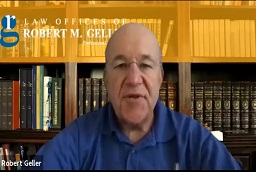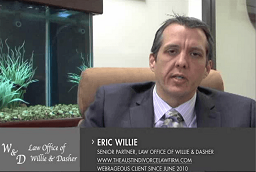
Ashleigh Saunders
Table of Contents
Using Brand Messaging
In general, it is good for law firms to define who they are targeting with their overall brand message. This [process] entails obtaining demographic information to build a “persona” and understand what messages are audience-appropriate. (age, gender, education, income, etc.)
More specifically, law firms can review Google search results for anything related to law to help determine search intent and provide a clearer image of who the target audience is. Additionally, evaluating competitors is a great way to obtain a clearer understanding of one’s target audience and how to serve them well.
Law firms can even define their target audience by investigating client reviews on various legal-related pages, which can also provide information on who the target audience may be.
Analytics pages are another important source of information. They provide insight into search behavior, geographics, and so much more. With this kind of powerful information, law firms can clearly and effectively define their target audiences.
Targeting the Right Audience Through Your Competitor
Finding the right audience for your client involves understanding your current clients, your ideal client, and which platforms will help reach your ideal client base.
The target audience of a lawyer will depend on the demographic research. You can use tools like Google Analytics to understand your current audience. Custom personas are great for understanding your audience because they illustrate qualitative and quantitative data.
Perhaps your clients are more insurance-based for corporate offices. Maybe more clients are heavily involved in car accidents or younger families searching for divorce lawyers. Once you dive deeper into the research, you will be able to understand the audience for lawyers.
You can also look into your competitors and research their audiences. If your competitor is targeting a certain demographic, follow in their footsteps but do it better. If your competitor is featured in a popular magazine, reach out to them to find out how you can be featured as well. Maybe your competitor is ranking on page one on Google search result pages. Find out what type of content they are producing and how you can rank higher for certain keywords.

Need Google Ads Management Help?
Free Google Ads account review for
qualified clients
Almost 20 years experience

Cady Cohen

Brett Melville
Discussing Business Strategies to Define the Target Audience
Defining the target audience for a lawyer is a straightforward process that begins by working with the law firm to define what their business strategy is. This means getting the business owner to answer questions relating to their business strategy like:
- What services does the business provide?
- What products does the business provide?
- Why do they do it? (Values, ethos, etc.)
- Who do they do it for?
- Who do they want to do it for?
Using business strategy focused discussions that fall out of asking the above questions help establish who the target audience for the law firm is. Often you find it is a specific client type they have enjoyed working with in the past or have found to be financially worth their time helping. Regardless, once the target audience is established, you can then brainstorm keywords for your SEO and PPC campaigns to attract the identified target audience.
Defining the Target Audience for a Lawyer
Start with the location target and establish what the service area of the practice is. Is it specific to just one city, or [does it] include the surrounding areas too? Does the firm service the entire state? Are residents of other states able to use the service virtually too? For both SEO and PPC marketing efforts, the geographical parameters of the business are a crucial first step for establishing a target audience and keyword strategy.
Next, review what services the firm specializes in. Determine if the practice [handles] primarily workplace/employment, personal injury, auto accidents, family law, criminal defense attorney, etc. Break down the specific types of cases within those services the firm has been involved with.
Workplace/Employment
• minimum wage, itemized wage, wrongful termination, overtime, workplace harassment
Personal Injury
• brain injury, catastrophic injury
Auto Accidents
• civilian cars, professional transport trucks, collisions, pedestrians, rideshares (Uber & Lyft)
Family Law
• child custody, adoption, divorce, unmarried parents’ rights
Criminal Defense
• DUI, drug possession, assault, theft, domestic violence, weapons offenses, property crimes, juvenile, restraining orders
With this [information], you can now build a series of client profiles that identifies your ideal lead’s age range, demographics, location, decision-making attributes, and triggers. Both broad audience and narrow audience targets can be structured with this information.
- Broad: Family Law Attorney Salt Lake City, UT
- Narrow: Unmarried Mother-Child Custody Lawyer in Pasadena, CA
Use these profiles to tap into key markets with your digital marketing efforts. Through utilizing tools like Google Analytics and Search Console, you will be able to review the data to determine whether your targeting methods are working effectively and providing you with healthy lead quality and quantity.
Jordan Brannon
This is a crowdsourced article. Contributors are not necessarily affiliated with this website and their statements do not necessarily reflect the opinion of this website, other people, businesses, or other contributors.



















